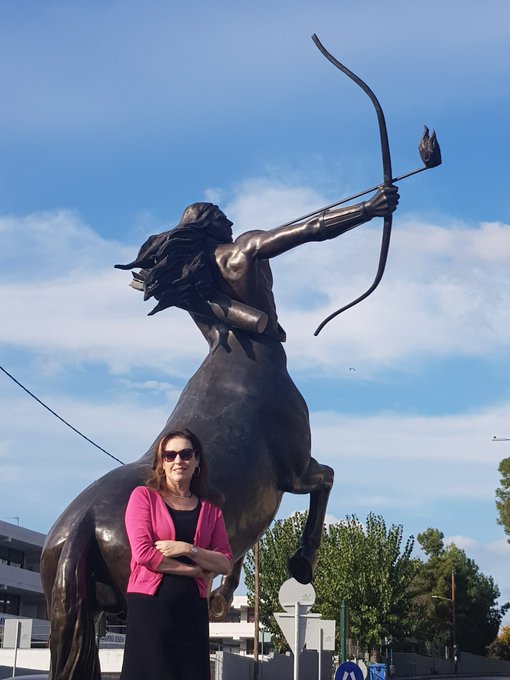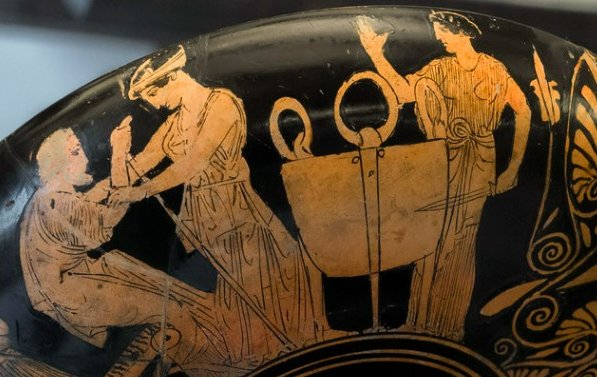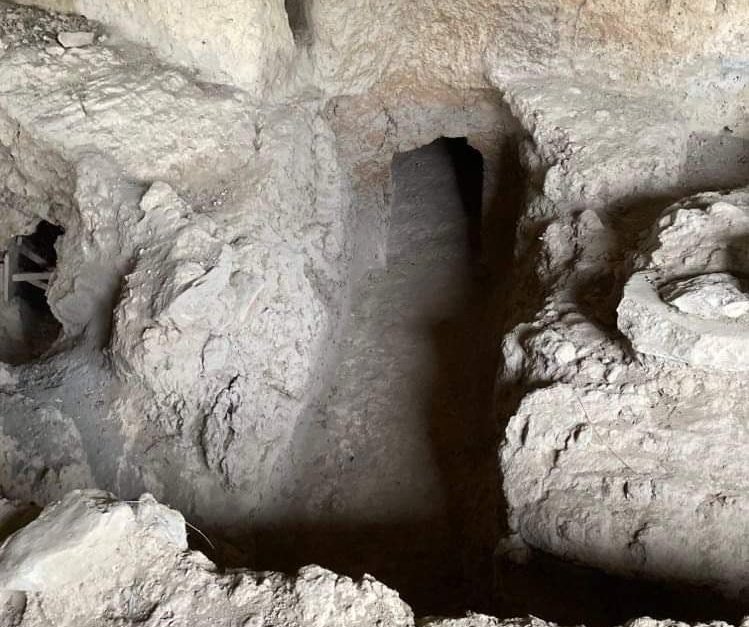I’ve just ticked off a
crucial item on my bucket list by touring Thessaly, and identifying key places
in Greek mythology. I’m in a break between surgery for breast cancer and radiotherapy
and am determined to enjoy myself. The horrid little tumour was detected very
early and the prognosis is excellent. But I spoke too soon two blogs ago about
things looking massively up after a couple of wilderness years.
After speaking at an august
conference run by the Academy of Athens I set off with fellow Argonauts,
brother and sister Leonidas and Sofia of the Papadopoulos family. But only
after seeing Leonidas’ beautiful new play Pass-Port at the aptly named
Argo theatre in Athens. Based on the PhD thesis he wrote under my supervision,
it explores the place that tragic sea crossings have always played in Greek
life.
Euripides’ tragedy Daughters of Pelias, of which only fragments and vase images illustrating it remain.
Today we ventured inland to the Mycenaean archaeological sites at nearby ancient Pherae, where one of Pelias’ daughters, Alcestis, married the local king, Admetus. Another tragedy by Euripides, his Alcestis, enacts how she gave up her life in the place of Admetus, died with her little children at her side, and then miraculously returned from the dead.
Heracles wrestled with Thanatos and retrieved her. We even found a Mycenaean tomb outside which that wrestling match could have taken place.
Nothing pleases me more than
adventures which trace the geophysical reality which provided the contexts for
ancient literature. I returned to Blighted Blighty tomorrow fully energized to
face whatever the NHS is about to throw at me. Not only have you not got rid of
me yet, but you ain’t SEEN nothing yet. I promise.








